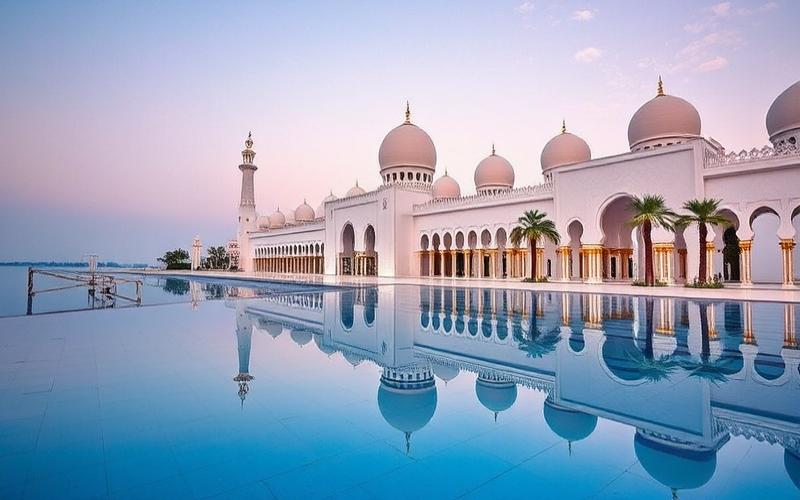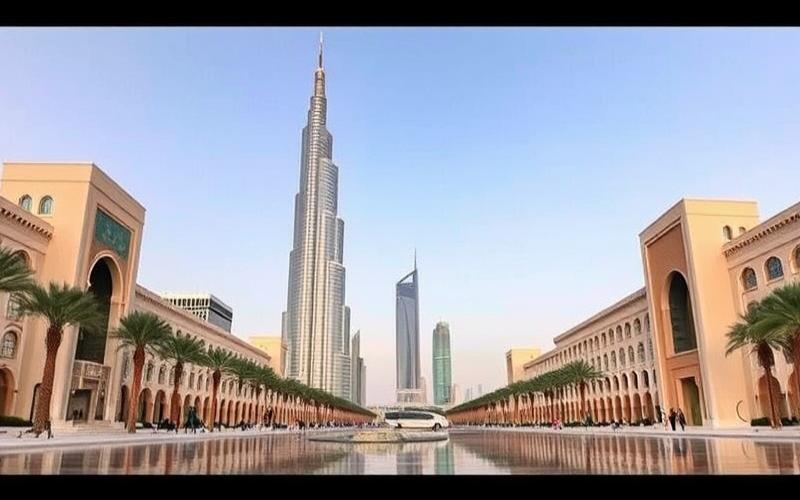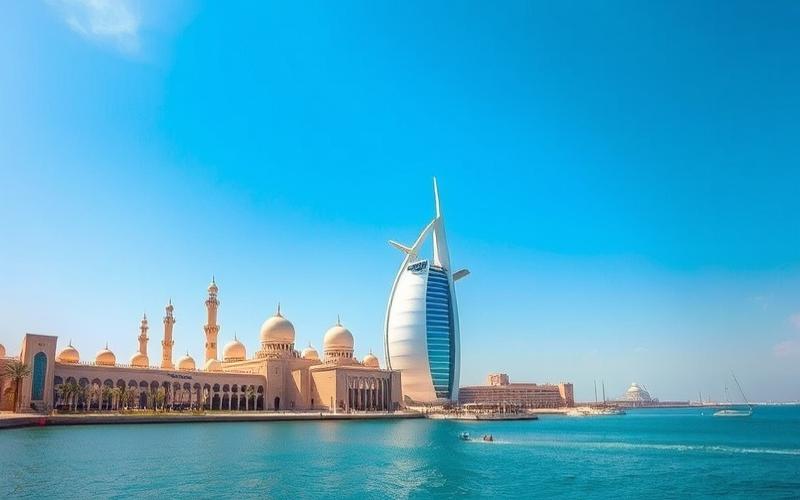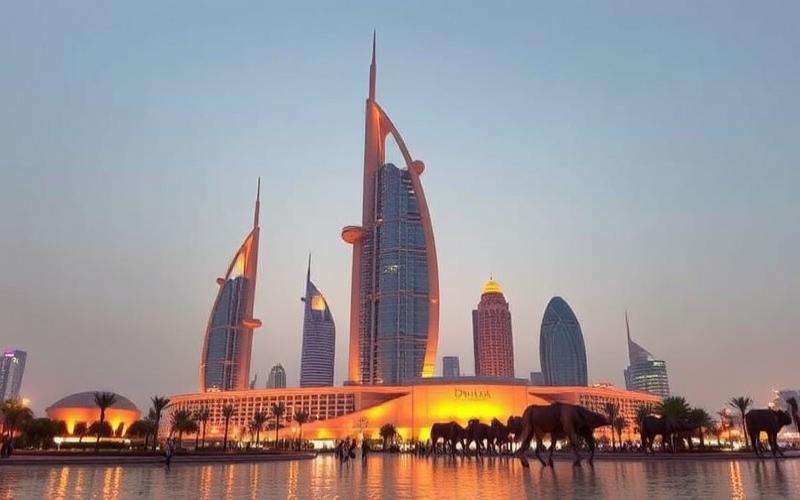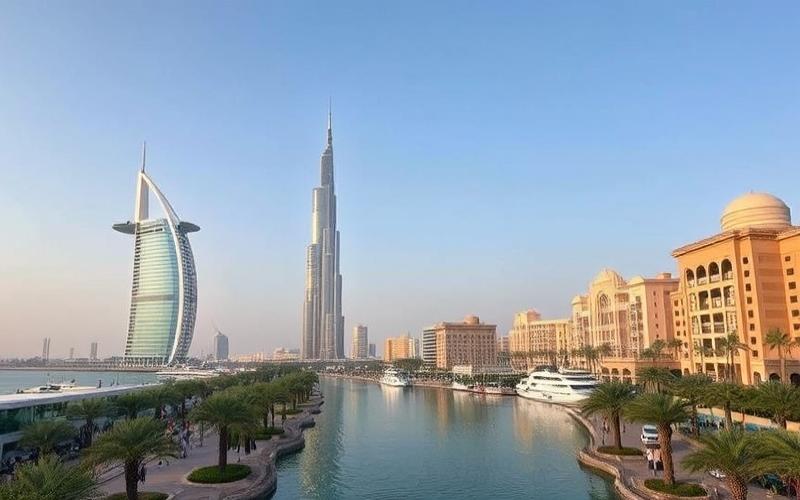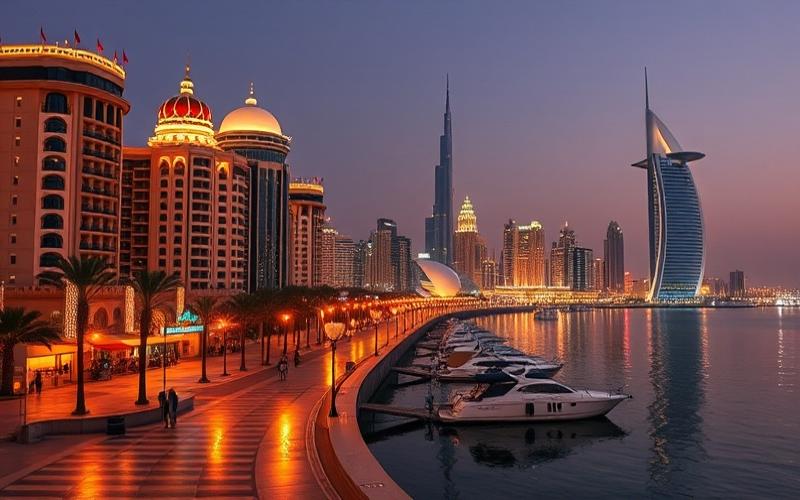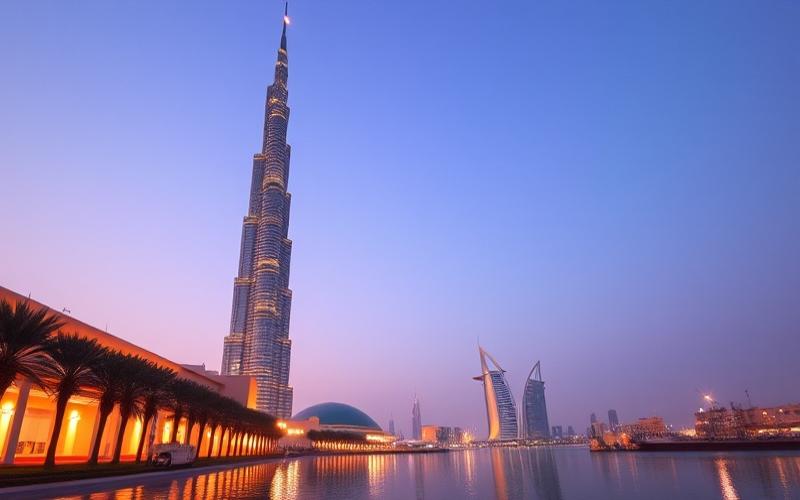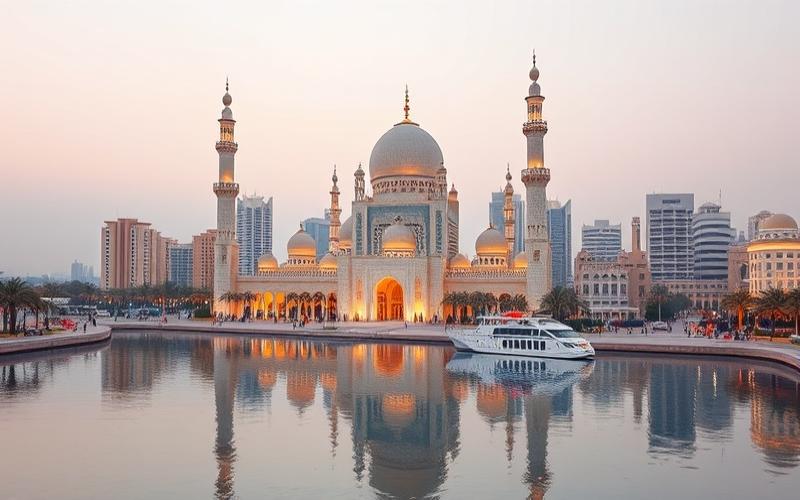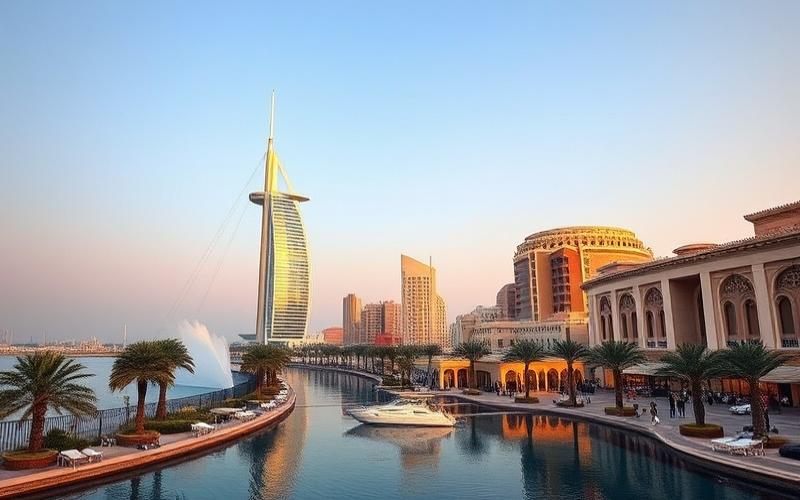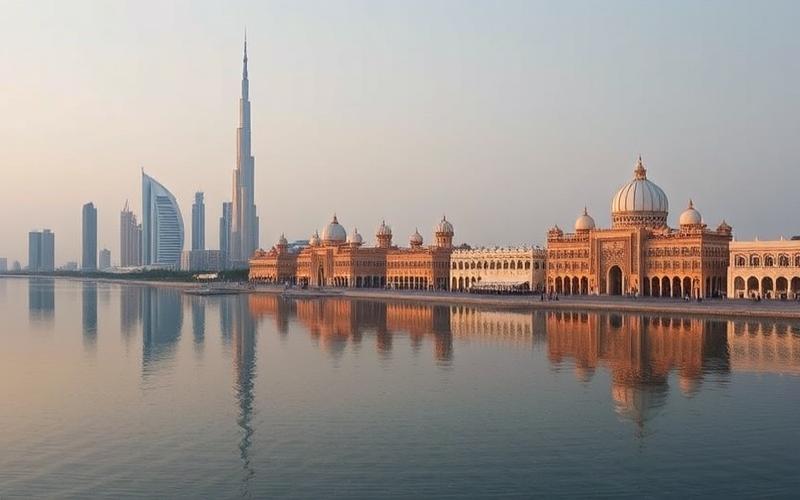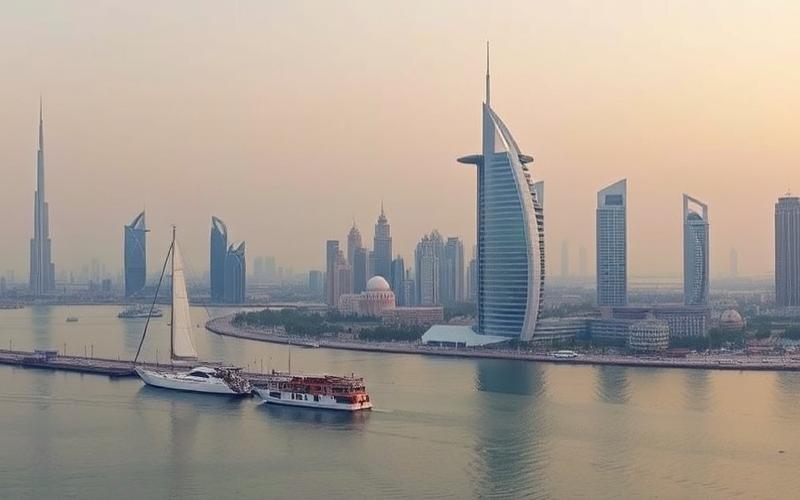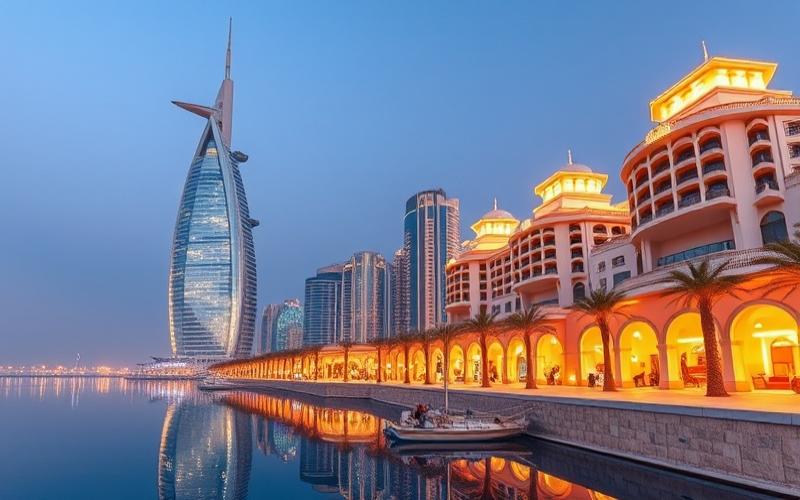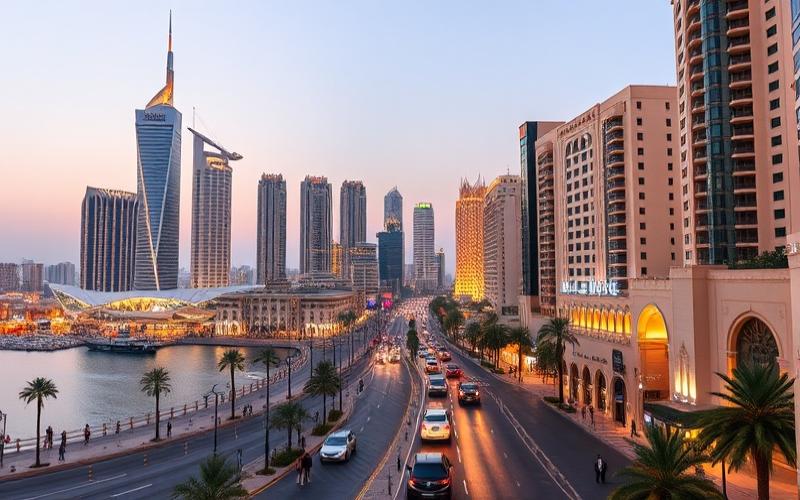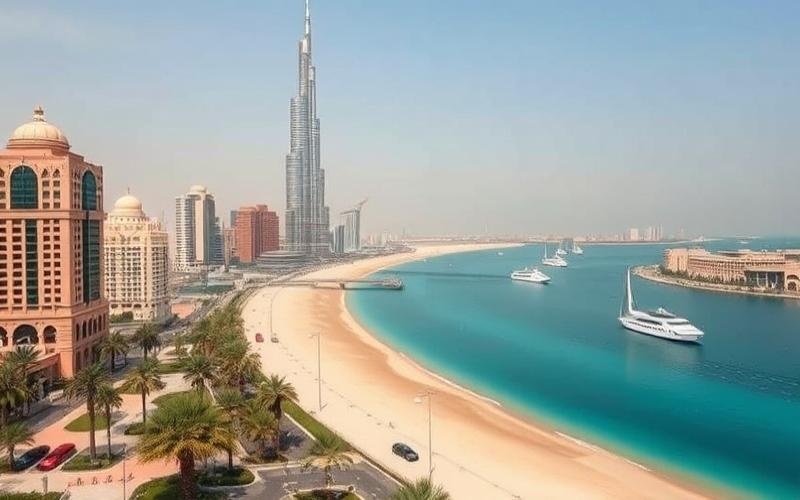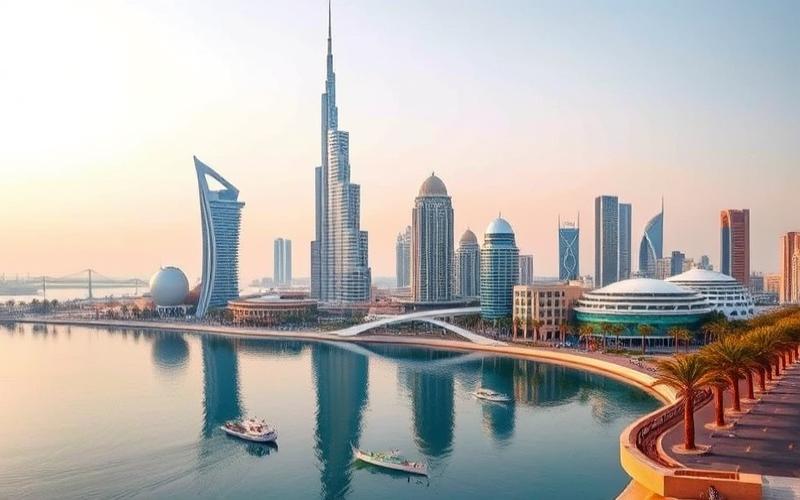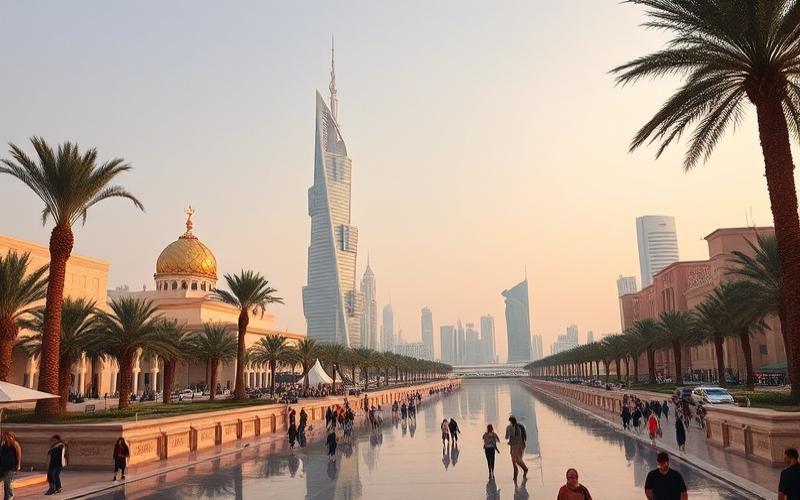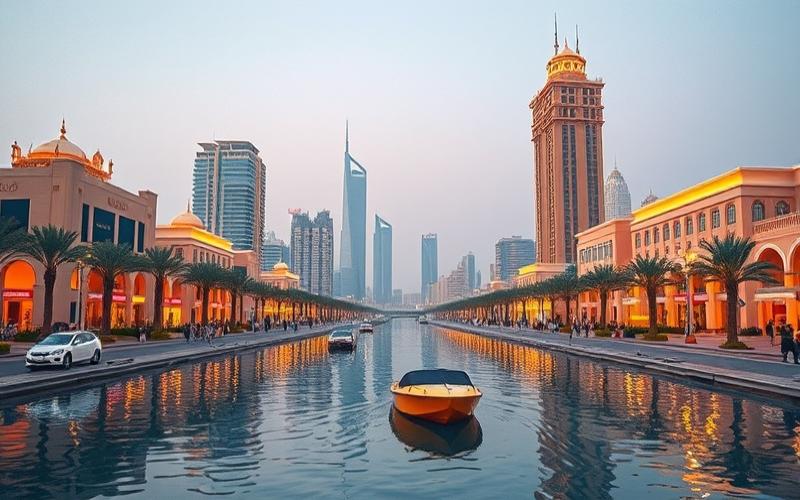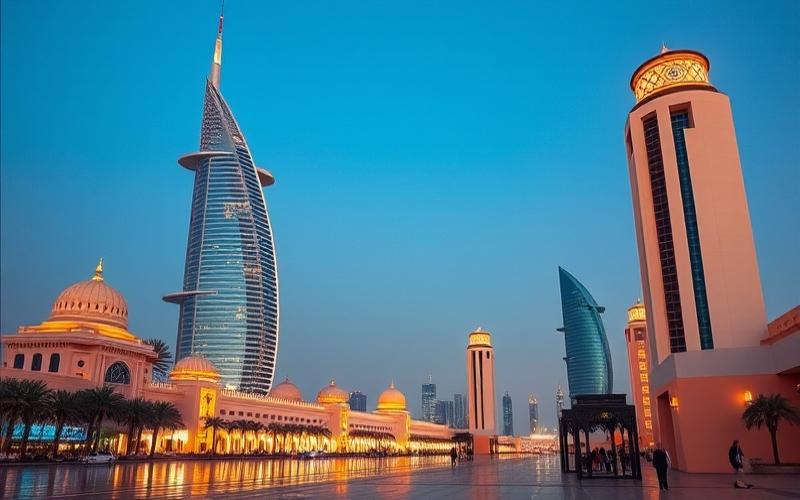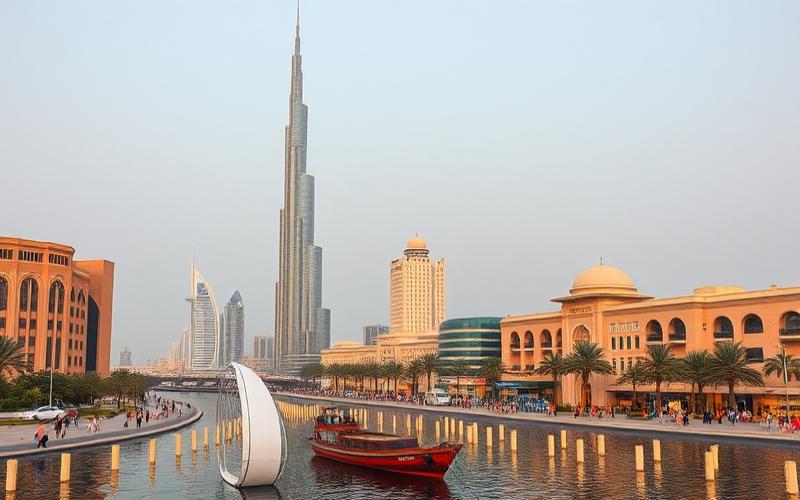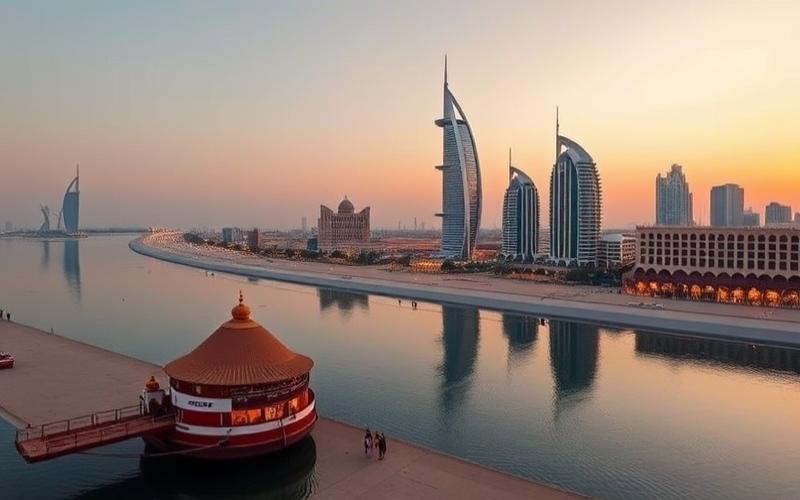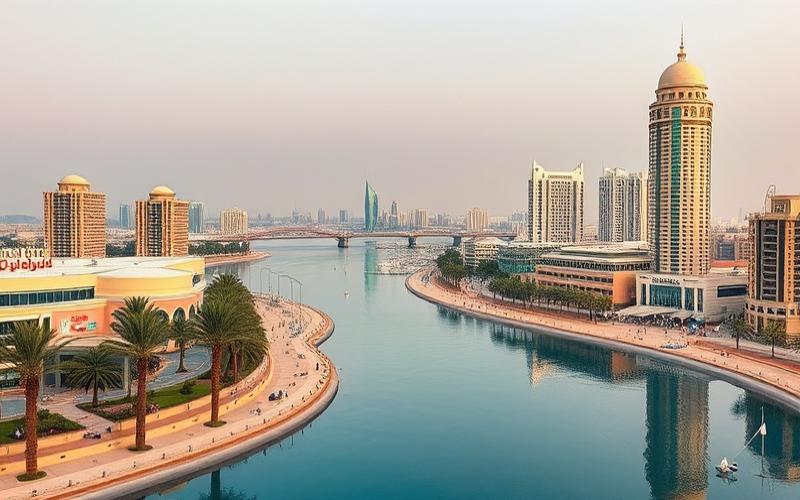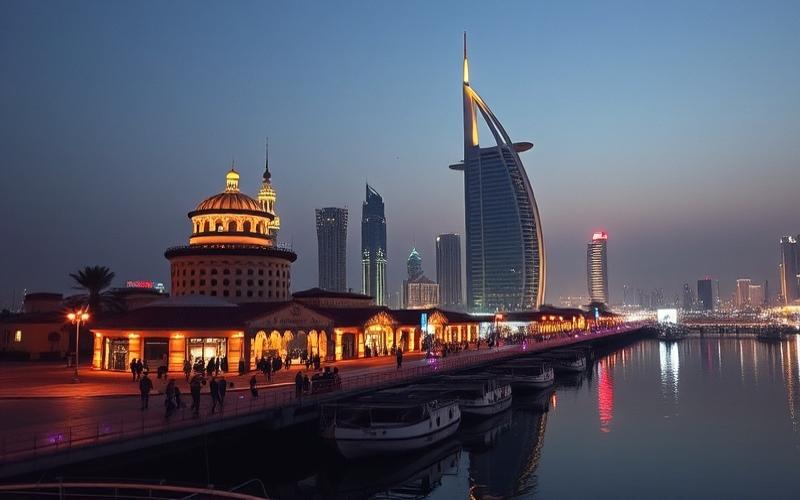
 Published on and written by Cyril Jarnias
Published on and written by Cyril Jarnias
Dubai, the jewel of the United Arab Emirates, has long attracted investors worldwide with its dynamic real estate market and unique opportunities. With its iconic skyscrapers, artificial islands, and luxurious lifestyle, the city has become a top destination for foreign buyers seeking to diversify their property portfolios. However, navigating the property purchase process in Dubai can seem complex for non-residents. This article will guide you through the essential steps, regulations, and important considerations for acquiring real estate in this Middle Eastern metropolis.
Dubai’s Real Estate Market: A Goldmine for Foreign Investors
Dubai’s real estate market has experienced spectacular growth over recent decades, making the city one of the most sought-after destinations for international property investment. According to recent data from the Dubai Land Department (DLD), real estate transactions in Dubai reached record levels in 2024, with a 15% increase compared to the previous year. This upward trend demonstrates continued investor confidence in the Dubai market.
Dubai’s appeal to foreign buyers lies in several key factors:
- A stable and diversified economy
- Attractive rental yields, often exceeding 6% annually
- Favorable tax environment, with no income tax or capital gains tax
- Modern infrastructure and ambitious development projects
- Regulatory framework favorable to foreign investors
Furthermore, the Dubai government has implemented initiatives to attract more foreign investors, including the introduction of long-term residence visas for property investors. These “golden visas” offer renewable 10-year residency for property investments with a minimum value of 2 million dirhams (approximately 500,000 euros), thereby enhancing the city’s appeal to international buyers.
Good to Know:
Dubai’s real estate market offers unique opportunities for foreign investors, combining attractive returns, favorable tax environment, and government initiatives supportive of international investment.
Unlike many countries, Dubai offers a relatively open environment for foreign investors in the real estate sector. However, it’s crucial to understand the specific regulations governing property purchases by non-residents.
Foreign Ownership Areas
In Dubai, foreigners can purchase real estate with full ownership rights in designated areas, known as “freehold areas.” These areas, numbering around forty, include popular neighborhoods such as:
- Dubai Marina
- Palm Jumeirah
- Downtown Dubai
- Emirates Hills
- Jumeirah Beach Residence (JBR)
In these areas, foreign buyers enjoy the same property rights as Emirati citizens, including the right to sell, rent, or mortgage their property.
Mandatory Registration
All property purchases in Dubai must be registered with the Dubai Land Department (DLD). This step is crucial and ensures the legality of the transaction. Registration involves fees, typically set at 4% of the property value, plus administrative charges. It’s important to note that these fees are usually shared between the buyer and seller, unless otherwise agreed.
Short-Term Rental Restrictions
If you’re considering purchasing a property for short-term rental (for example, on platforms like Airbnb), be aware that Dubai has implemented strict regulations. A special license is required for short-term rentals, and restrictions may apply depending on the area and property type. It’s advisable to check with the Department of Tourism and Commerce Marketing (DTCM) for specific rules.
Good to Know:
Foreigners can purchase properties with full ownership rights in designated areas in Dubai. Registration with the DLD is mandatory, and specific regulations apply to short-term rentals.
International Taxation: A Tax Haven for Real Estate Investors?
One of the most attractive aspects of real estate investment in Dubai is its favorable tax regime. However, it’s essential to understand the tax implications both in Dubai and in your home country.
Taxation in Dubai
Dubai is renowned for its light taxation, making it a popular destination for international investors. Here are the main tax benefits for property owners:
- No tax on rental income
- No capital gains tax when selling a property
- No annual property tax
However, there are some fees to consider:
- Property transfer fees (4% of property value)
- Annual maintenance fees for jointly owned properties
- Municipal service fees, typically included in water and electricity bills
Tax Implications in Your Home Country
While Dubai offers a favorable tax environment, it’s crucial to consider tax obligations in your country of residence. Many countries tax their residents on their worldwide income, including rental income and capital gains earned abroad. For example:
- In France, rental income received from Dubai must be declared and may be subject to French income tax.
- In the United Kingdom, UK residents are required to declare and potentially pay taxes on their worldwide property income.
- In the United States, US citizens must declare their worldwide income, including that from properties in Dubai.
It’s highly recommended to consult with an international tax expert to fully understand the tax implications of your Dubai real estate investment in the context of your personal situation and your country of residence’s legislation.
Good to Know:
Dubai offers a highly favorable tax environment for real estate investors, with no tax on rental income or capital gains. However, it’s essential to consider tax obligations in your home country for optimal tax planning.
Required Documents: Prepare Your Purchase File
Acquiring real estate in Dubai requires preparing a complete file. Here are the main documents you’ll need as a foreign buyer:
Identity Documents
- Valid passport
- UAE residence visa (if applicable)
- Recent passport-sized photograph
Financial Documents
- Bank statements from the last 3 to 6 months
- Proof of funds for purchase (bank statement, bank letter)
- Loan pre-approval letter (if financing the purchase with credit)
Transaction-Specific Documents
- Form F (DLD property transfer form)
- Memorandum of Understanding (MOU) or sales contract
- No Objection Certificate (NOC) from the developer or owners’ association
Additional Documents for Companies
If the purchase is made in the name of a company, additional documents will be required:
- Commercial license
- Company incorporation documents and articles of association
- Board resolution authorizing the purchase
- Power of attorney for the authorized signatory
It’s important to note that all documents not issued in the UAE must be legalized and translated into Arabic by a certified translator. This process can take time, so it’s recommended to start preparing these documents well in advance.
Additionally, the purchase process typically involves signing a Memorandum of Understanding (MOU) between the buyer and seller. This preliminary document outlines the terms of the transaction and is followed by the final sales contract.
Good to Know:
Preparing a complete file is crucial for property purchase in Dubai. Ensure you have all necessary documents, legalized and translated if required, to avoid any delays in the purchase process.
Property Ownership for Foreigners: What Are Your Options?
Dubai has significantly relaxed its rules regarding property ownership for foreigners over the years, now offering numerous options for international investors. Here’s a detailed overview of the possibilities available to you:
Freehold Ownership
In designated “freehold” areas, foreigners can purchase real estate with full ownership rights. This means you have the right to own, sell, rent, or mortgage your property without restrictions. The most popular freehold areas include:
- Dubai Marina
- Palm Jumeirah
- Downtown Dubai
- Jumeirah Lake Towers (JLT)
- Arabian Ranches
These areas offer a variety of properties, ranging from luxury apartments to spacious villas, catering to different budgets and preferences.
Long-Term Lease (Leasehold)
In certain areas, foreigners can acquire long-term lease rights, typically for 99 years. While this isn’t full ownership, a long-term lease offers many similar benefits and can be an attractive option in some sought-after areas.
Ownership via Offshore Company
Another popular option among foreign investors is purchasing properties through an offshore company registered in Dubai. This method can offer benefits in terms of estate planning and confidentiality. The Jebel Ali Free Zone (JAFZA) is particularly popular for establishing such companies.
Restrictions and Considerations
Despite the openness of Dubai’s real estate market to foreigners, some restrictions remain:
- In non-freehold areas, foreigners may be limited to long-term leases rather than full ownership.
- Certain properties, particularly vacant land in specific areas, may be reserved for UAE or GCC (Gulf Cooperation Council) citizens.
- Rules may vary between emirates. For example, Sharjah has different regulations regarding foreign ownership compared to Dubai.
It’s crucial to verify the exact property status and associated rights before proceeding with a purchase. Working with a licensed real estate agent and a lawyer specializing in Dubai real estate can help you navigate these complexities and make an informed choice.
Good to Know:
Foreigners have numerous options for acquiring real estate in Dubai, including full ownership in freehold areas, long-term leases, and purchase via offshore companies. Each option has its specific advantages and considerations, requiring thorough due diligence before purchase.
Purchase Process: From Search to Key Handover
Buying real estate in Dubai as a foreigner involves several key steps. Here’s a detailed guide to the process:
1. Property Search and Selection
Start by defining your criteria (budget, property type, location) and conducting thorough research. Use reputable real estate portals like Property Finder or Bayut, and consider working with a real estate agent licensed by RERA (Real Estate Regulatory Agency) to access a wider range of properties.
2. Due Diligence
Once you’ve identified a property, conduct thorough due diligence:
- Verify the property title with the Dubai Land Department
- Examine area development plans
- Inspect the property in person or through a trusted agent
3. Negotiation and Offer
Make an offer to the seller, typically through your agent. Once the offer is accepted, you’ll sign a Memorandum of Understanding (MOU) and pay a deposit, usually 10% of the purchase price.
4. Financing
If you need financing, this is the time to finalize your mortgage. Dubai banks typically offer loans up to 75% of the property value for non-residents. Make sure you have all necessary documents for the loan application.
5. Property Transfer
The property transfer takes place at the Trustee Office of the Dubai Land Department. The steps include:
- Payment of transfer fees (4% of property value)
- Signing the final sales contract
- Exchange of checks or bank transfer for the remaining purchase price balance
6. Registration
After the transfer, the property is officially registered in your name. You’ll receive a property title (called “Title Deed”) from the Dubai Land Department.
7. Key Handover and Move-In
Once all formalities are completed, you’ll receive the keys to your new property. If you purchased off-plan, this step will occur upon project completion.
Throughout the process, it’s highly recommended to work with experienced professionals, including a licensed real estate agent and a lawyer specializing in Dubai real estate. They can guide you through the complexities of the local market, help you avoid common pitfalls, and ensure all legal procedures are properly followed.
Good to Know:
The property purchase process in Dubai for foreigners involves several steps, from initial research to final registration. Thorough due diligence, secured financing, and assistance from local professionals are essential for a successful transaction.
Conclusion: Dubai, A Dynamic Real Estate Market Open to International Investors
Real estate investment in Dubai offers unique opportunities for foreign buyers, combining a dynamic market, potentially high returns, and a favorable tax environment. The city continues to attract investors worldwide with its modern infrastructure, diversified economy, and ambitious development projects.
However, as with any international investment, it’s crucial to approach Dubai’s real estate market with a thorough understanding of local regulations, tax implications, and purchase processes. Meticulous preparation of your file, conducting comprehensive due diligence, and relying on experienced local professionals are essential for successfully navigating this complex but potentially lucrative market.
Whether you’re looking for a luxurious desert pied-à-terre, a high-yield rental investment, or diversification of your international property portfolio, Dubai offers a range of options to meet your objectives. With careful planning and expert advice, real estate investment in Dubai can be a valuable addition to your overall investment strategy.
Disclaimer: The information provided on this website is for informational purposes only and does not constitute financial, legal, or professional advice. We encourage you to consult qualified experts before making any investment, real estate, or expatriation decisions. Although we strive to maintain up-to-date and accurate information, we do not guarantee the completeness, accuracy, or timeliness of the proposed content. As investment and expatriation involve risks, we disclaim any liability for potential losses or damages arising from the use of this site. Your use of this site confirms your acceptance of these terms and your understanding of the associated risks.

